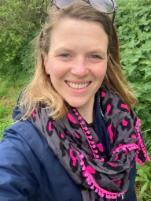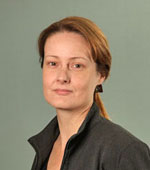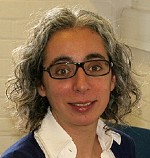Centre Members
Members of the Centre for Social Mobility share an interest in rigorous research and effective practice that supports students to progress into higher education, should they wish to do so, and also to achieve within higher education and beyond. We aim to support and enhance research and practice locally at the University of Exeter and our local communities, nationally, and internationally.
 |
Ruth Flanagan, Lecturer in Education (Academic), Race Equality Resource Officer (Professional Services) What: Interested in individual's worldviews and their potential impact on learning and teaching in primaryand higher education, examining the role of narrative and hermeneutical interpretation to facilitate this understanding. How: Theoretical research, quantitative, qualitative research, mixed methods. Quote: 'We belong to a historical tradition through relation of distance which oscillates between remoteness and proximity to interpret is to render near what is far (temporally, geographically, culturally and spiritually)' (Ricoeur, P.,1986:32) |
 |
Dr George Koutsouris, Lecturer in Education (special educational needs and inclusion) What: Interested in social inequalities, social inclusion, disability-related difficulties, curricular and extra-curricular experiences at university. How: Qualitative, mixed methods and theoretical research.
|
 |
Professor Debra Myhill, Professor of Education What: I am interested in language, inequality and social justice, particularly how literacy is a key gateway to empowerment, educational achievement and democratic participation. In particular I am interested in writing and the teaching of writing with greater emphasis on developing young writers’ metacognitive and metalinguistic understanding of the decisions they make in writing. How: Qualitative research, particularly interviews, classroom observation and text analysis but also mixed methods approaches, including RCTs, with robustly-designed complementary qualitative data collection. |
 |
Dr Chris Playford, Lecturer in Sociology What: I am interested in better understanding social inequalities in education and the labour market. This includes attainment at the end of compulsory schooling, variation in school subjects studied, transitions through education into work and the measurement of social stratification and job quality. How: Quantitative data and statistical modelling. I specialise in the secondary analysis of large-scale survey and administrative data. |
|
|
Dr Katherin Barg, Lecturer in Education, Graduate School of Education What: Interested in social inequality in school transitions and transition to higher education, educational decision-making, parental involvement and parenting values, teacher students' attitudes towards social inequality, teacher assessment and decision-making How: Quantitative research and mixed methods |
|
|
Dr Julie Pepper, Lecturer (E&S), Advanced Teaching Practitioner – Collaboration & Innovation, Degree Apprenticeships, Dept of Management, UEBS What: I returned to academia at Exeter in 2021 after a career break to have my children. I am currently a lecturer in Degree Apprenticeships teaching professional practice and have an Advanced Teaching Practitioner role in Collaboration and Innovation. I have an interdisciplinary research background and have published papers on women in risky leadership positions, rule breaking, healthy workplaces and the careers that young people aspire to. How: Qualitative & quantitative research. I have an interest in using @lego serious play in research. Why get in touch: I would love to hear from anyone interested in maths anxiety/maths self-concept, young people’s aspirations, raising awareness of degree apprenticeships, identity, and wellbeing. I also have an interest in communicating information in new ways. Email: J.s.a.pepper@exeter.ac.uk |
 |
Dr Katherine Ashbullby, Lecturer (E & S) Psychology, Faculty of Health and Life Sciences What: I am a part-time lecturer in psychology, where I teach qualitative research methods and environmental psychology and am co-director for undergraduate admissions. Having worked as a wellbeing researcher in a charity that aimed to improve the quality of working life, I am passionate about embedding wellbeing into my teaching, and using playful approaches, including lego serous play, to engage students. I have an interdisciplinary research background in economic, environmental, and organisational psychology. As a student, I attended the University of Exeter myself from a widening participation school in Devon, so am keen to explore ways to support more students into higher education. My background in economic psychology means I am interested in how a lack of financial support as well as financial struggles can impact the wellbeing and academic performance of students. How: Qualitative research, in-depth interviews, playful approaches Why get in touch? I would love to hear from anyone interested in mature students’ experiences, the financial difficulties facing students, the challenges faced by those from widening participation backgrounds, and whole systems approaches to wellbeing to support students from diverse backgrounds. Email: k.ashbullby@exeter.ac.uk |
_(1).jpg) |
Dr Alexey Bessudnov, Senior Lecturer (Sociology) Who: Alexey Bessudnov, Senior Lecturer in Quantitative Sociology What: social inequalities in education; ethnic groups; educational evaluation. How: longitudinal data analysis and field experiments. Learn more: visit http://abessudnov.net |
| |
Lauren Stentiford, Lecturer in Education, Graduate School of Education What: Interested in student transitions to university, gender and social class in higher education, disciplinary teaching and learning cultures, inclusive pedagogies. How: Qualitative research, participatory research, systematic reviews. |
.jpg) |
Dr Alison Truelove, Lecturer in Critical Practice, UEBS What: Designing, delivering and evaluating interventions to address achievement gaps; encouraging ‘hard to reach’ students to access academic support; facilitating alternative routes into higher education; teaching enhancement. How: I lead on student and staff academic development in the Business School, including success and progression elements of widening participation activity, and am Academic Subject Lead for UEBS on the Transforming Transitions research project. This has included evaluations of our initiatives around academic tutoring and maths support, and prompted further revisions of our induction programme. I’m working with external organisations to facilitate alternative modes of entry onto HE programmes, and to develop pre-arrival support and materials to ease the transition of non-traditional students into university-level study. Why get in touch: I’m always interested in sharing approaches to improving access to HE and narrowing achievement gaps, in particular within large student cohorts. |
 |
Matthew Channon, Lecturer, Law School |
 |
Lee Snook, Academic Liaison Librarian What: I am responsible for evaluating and selecting library resources, and planning and delivering library research skills support to help students make the best use of library resources. How: I am interested in building inclusive library skills support and resources for all levels of learning and prior experience; developing pre-arrival and induction materials to ease the transition into HE library research and offering stepped skills materials to encourage students to build their skills and knowledge in a progressive way that is best suited to their individual competency level and learning style. Why get in touch: Get in touch if you’d like to know more about library support for students, or if you would like advice on developing effective research strategies to discover materials relevant to your own social mobility research projects. |
 |
Claire Lavers, Senior Lecturer in the Business School What: Interested in performance gaps in HE outcomes for students with protected characteristic and in promoting accessible teaching practice amongst staff. How: Qualitative and quantitative research as well as delivering training sessions. |
.jpg) |
Amy McEwan, Academic Liaison Librarian What: I design, facilitate and evaluate digital and face-to-face interventions to support students in engaging with evidence and developing research skills. I am currently working on projects supporting student transition and wellbeing and I am interested in how Library Services can support the student lifecycle in higher education. How: Practical support for students, 1:1 information and digital skills support (finding and evaluating information), resource development Why get in touch: If you’d like to discuss how the Library can support student skill development, or if you would like to discuss projects or partnerships to improve support for students. |
 |
Dr Will Shield, Child and Educational Psychologist, Graduate School of Education What: I’m interested in inclusive educational practice and applying psychology to support learners from a range of backgrounds to progress through education. How: Applied psychological practice; quantitative and mixed methods research. |
 |
Manuela Barreto, Professor of Social and Organizational Psychology What: My research focuses on marginalization, identity, and stigma, and specifically on the impact of prejudice and discrimination on wellbeing, social relationships, and aspirations. I am also interested in the role of culture, identity, stigma, and life transitions in experiences of social (dis)connection. How: Reviews, quantitative research (including cross-sectional and longitudinal surveys, and experiments), qualitative research, mixed methods. |
.jpg) |
Dr. Annabel Watson, Senior Lecturer in Language Education, School Direct Programme Leader, Secondary English PGCE Course Leader What: Working in the fields of literacy, writing development and secondary school English education, I’m interested in how we can support students from diverse backgrounds to understand language critically and use it powerfully. How: Primarily qualitative methods, and particularly interviews, lesson observation and analysis of pupils’ work. |
 |
Dr. Samuel Pollard, Senior Lecturer in Medical Science, UEMS What: I have a range of teaching and leadership responsibilities across the College of Medicine and Health and the University. My core educational interests are centred on reducing the barriers to success for mature students within HE. How: I chair the Mature Student Strategy Working Group that sits underneath the Success for All Strategy; and its primary aims are to increase mature student recruitment and experience whilst reducing the attainment and non-continuation rate gaps. Why get in touch: If you are interested in exploring collaborations within the area of mature students in HE.
|

.jpg)